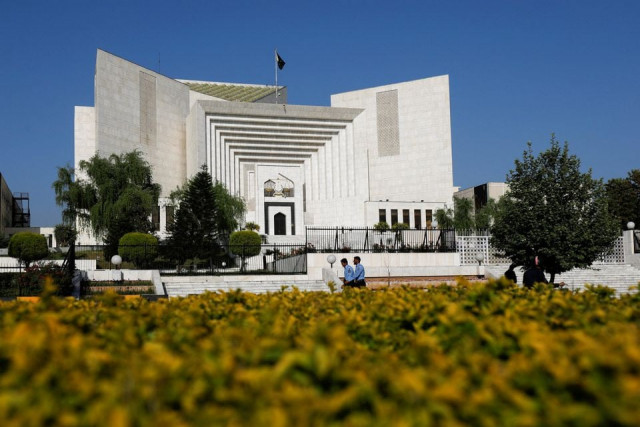Why is only Imran opposing NAB law changes, asks SC judge
PTI chief's lawyer says in Islam, there is command of accountability of govt officials

A Supreme Court judge on Tuesday observed that no other political party or citizen except PTI chairman and deposed premier Imran Khan had challenged the recent amendments to the country's accountability law.
“Why is Imran Khan the only one affected by these amendments out of the country's 25 million population?” Justice Syed Mansoor Ali Shah inquired during the court proceedings.
A three-judge special bench, headed by Chief Justice of Pakistan Umar Ata Bandial and comprising Justice Ijazul Ahsan and Justice Shah, resumed the hearing of a petition filed by the PTI chief against the current government’s changes in the National Accountability Ordinance (NAO) 1999.
Imran's lawyer Khawaja Haris while presenting his arguments said that in Islam, there was a command of accountability of government officials.
He further contended that according to Islam, the ruler was responsible for any injustice in the country.
“If the basis of the application against the NAB [National Accountability Bureau] amendments is not solid, then the court should dismiss it,” he added.
Justice Shah responded that the PTI lawyer had claimed that the NAB amendments were weakening the structure of the country’s law.
However, he added that Haris had yet to tell the court which fundamental rights were being violated because of the NAB amendments.
Read Uncertainty abounds around dissolution of assemblies
The judge remarked that there was no doubt that there should be accountability in the country but the question was who was going to ensure that the process took place.
Haris replied that those who ensured the process of accountability could not be exempted from it.
Justice Shah responded that those exempted from the NAB amendments must be criminals under any other law.
The judge noted that it was possible that apart from the NAB law, the legislation applicable to corruption was weak.
Justice Shah inquired under what authority should the apex court order to make a strict accountability law based on fundamental rights.
The court adjourned further hearing of the case till Wednesday (today).
In the plea, the PTI chief had described the amendments as "violative of fundamental rights".
He further claimed that the changes in the law were made to benefit influential people and legitimise corruption.
He added in the petition that the amendments were aimed at setting aside corruption charges against the president, prime minister, chief ministers and ministers.
Imran further contended in his plea that the changes allowed convicted public office-holders to have their sentences reversed.


1724319076-0/Untitled-design-(5)1724319076-0-208x130.webp)
















COMMENTS
Comments are moderated and generally will be posted if they are on-topic and not abusive.
For more information, please see our Comments FAQ